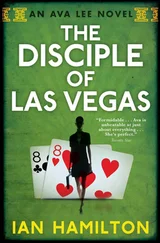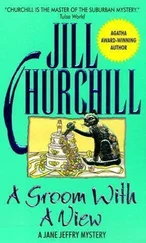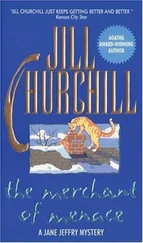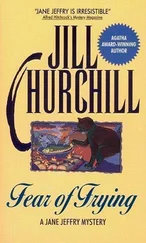Winston Churchill - Ian Hamilton's March
Здесь есть возможность читать онлайн «Winston Churchill - Ian Hamilton's March» весь текст электронной книги совершенно бесплатно (целиком полную версию без сокращений). В некоторых случаях можно слушать аудио, скачать через торрент в формате fb2 и присутствует краткое содержание. Год выпуска: 2018, Издательство: epubBooks Classics, Жанр: История, Прочая документальная литература, на английском языке. Описание произведения, (предисловие) а так же отзывы посетителей доступны на портале библиотеки ЛибКат.
- Название:Ian Hamilton's March
- Автор:
- Издательство:epubBooks Classics
- Жанр:
- Год:2018
- ISBN:нет данных
- Рейтинг книги:4 / 5. Голосов: 1
-
Избранное:Добавить в избранное
- Отзывы:
-
Ваша оценка:
- 80
- 1
- 2
- 3
- 4
- 5
Ian Hamilton's March: краткое содержание, описание и аннотация
Предлагаем к чтению аннотацию, описание, краткое содержание или предисловие (зависит от того, что написал сам автор книги «Ian Hamilton's March»). Если вы не нашли необходимую информацию о книге — напишите в комментариях, мы постараемся отыскать её.
London to Ladysmith
Ian Hamilton's March — читать онлайн бесплатно полную книгу (весь текст) целиком
Ниже представлен текст книги, разбитый по страницам. Система сохранения места последней прочитанной страницы, позволяет с удобством читать онлайн бесплатно книгу «Ian Hamilton's March», без необходимости каждый раз заново искать на чём Вы остановились. Поставьте закладку, и сможете в любой момент перейти на страницу, на которой закончили чтение.
Интервал:
Закладка:
'Don't be frightened,' said my rescuer; 'they won't hit you.' Then, as I did not reply, 'My poor horse, oh, my poor ― horse; shot with an explosive bullet. The devils! But their hour will come. Oh, my poor horse!'
I said, 'Never mind, you've saved my life.' 'Ah,' he rejoined, 'but it's the horse I'm thinking about.' That was the whole of our conversation.
Judging from the number of bullets I heard I did not expect to be hit after the first 500 yards were covered, for a galloping horse is a difficult target, and the Boers were breathless and excited. But it was with a feeling of relief that I turned the corner of the further kopje and found I had thrown double sixes again.
The result of the race had been watched with strained attention by the rest of the troops, and from their position they knew that we were beaten before we ever reached the wire fence. They had heard the sudden fierce crackle of musketry and had seen what had passed. All the officers were agreed that the man who pulled up in such a situation to help another was worthy of some honourable distinction. Indeed, I have heard that Trooper Roberts—note the name, which seems familiar in this connection—is to have his claims considered for the Victoria Cross. As to this I will not pronounce, for I feel some diffidence in writing impartially of a man who certainly saved me from a great danger.
Well satisfied with my brief experience with the scouts, I returned to General Brabazon. While we had been advancing deeply into the Boer flank, they had not been idle, and now suddenly, from the side of the solitary kopje behind which they had collected, three guns came into action against us. For ten minutes the shell fire was really hot. As these guns were firing with black powder, the smoke springing out in a thick white cloud from the muzzle warned us whenever a projectile was on its way, and, I think, added to the strain on the nerves. You could watch the distant artillery. There was the gun again; four or five seconds to wonder whether the shell would hit you in the face; the approaching hiss rushing into a rending shriek; safe over; bang! right among the horses a hundred yards behind. Here comes the next—two guns fired together this time. Altogether, the Boers fired nearly thirty shells—several of which were shrapnel—on this small space of ground. But fate was in a merciful mood that day, for we had but one man killed and five or six—including the General's orderly—wounded by them.
It was, however, evident that this could not endure. Brabazon had not cared to bring his own two guns into such an advanced position, because they were not horse guns, and might not be able to get away safely if the Boers should make a strong counter attack. Indeed, so long as the loss of guns is considered a national disaster instead of only an ordinary incident of war, Cavalry officers will regard them rather as sources of anxiety than as powerful weapons.
Without guns it was useless to stay, and as, moreover, Sir Leslie Rundle's orders were that the Cavalry were not to be severely engaged, Brabazon decided to withdraw the reconnaissance, and did so most successfully, after an instructive little rearguard action. He had penetrated far into the enemy's position; had compelled him to move his guns and disturb his frontal dispositions; had reconnoitred the ground, located the laagers, and come safely away with the loss of little more than a dozen men. Had there been on this day an Infantry support behind the Cavalry we should have hustled the enemy out of his whole position and slept triumphantly in Dewetsdorp.
Sir Leslie Rundle was much impressed by the vigour and success of the Cavalry, whose fortunes were watched from the plateau, and as evening came the report spread through the camp that a general engagement would be fought on the next day. He also decided to entrust the direction of the actual turning attack to General Brabazon, who, besides his Cavalry force, was to have twelve guns and an Infantry brigade under his command.
With every feeling of confidence in the issue the Army went to bed, impatient for the dawn. But in the dead of night a telegram arrived from Lord Roberts, instructing Rundle not to press his attack until he was in touch with Pole–Carew and other reinforcements; and it thus became evident that the operations had grown to an altogether larger scale.
Chapter VI
The Dewetsdorp Episode
Bloemfontein: May 1
Sometimes it happens that these letters are devoted to describing small incidents, and often personal experiences in a degree of detail which, if the rest of the campaign were equally narrated, would expand the account to limits far beyond the industry of the writer or the patience of the reader. At others many important events must be crowded into a few pages. But though the proportions of the tale may vary, I shall not deserve criticism so long as the original object of conveying a lively impression of the war is strictly pursued; nor should the reader complain if, for his instruction or amusement, he is made one day to sit with the map of the Orange Free State spread before him, and move little flags to show the course of the operations, and on another day is invited to share the perils of a scout's patrol or try the chances of a cavalry skirmish. To–day there is much to tell, and we must remain almost beyond the sound of the cannon watching a distant panorama.
The object of the operations was in any case to relieve Wepener, and to clear the right hand bottom corner of the Orange Free State of the Boers, and, if the enterprise prospered and the fates were kind, to cut off and capture some part of their forces. In all five columns were in motion. There were to be demonstrations along the east of the railway line, increasing in earnestness according as they were nearer the south, and the lowest columns were to actually push the matter through. Ian Hamilton, with 2,000 Mounted Infantry, was ordered to demonstrate against the waterworks position. French, supported by Pole–Carew, was instructed to move on Leeukop. Rundle, in conjunction with Hart and Brabant from the southward, was to force his way to Dewetsdorp and to relieve Wepener. What befell his column on April 20 and 21 has already been described. The attack on the Boer position in front of Dewetsdorp had not been made on the 20th because Sir Herbert Chermside pointed out that the Infantry were fatigued with marching. The next morning the smooth hills were crowned with entrenchments, and it was thought better to wait for Campbell's Brigade, which would arrive at sundown.
The 22nd was to be the day of battle. Meanwhile Sir Leslie Rundle had telegraphed to Lord Roberts describing the horseshoe position of the enemy, and its strength, explaining that with the small mounted force at his disposal any attack which he might make would develop into something very like a frontal attack, and would be costly. A strong memorandum had previously been circulated among divisional and brigade commanders condemning, almost prohibiting, frontal attacks, and the General, not unnaturally, wished to assure himself that the price of victory would not be grudged. When this telegram reached Bloemfontein it was apparently misunderstood. 'Rundle is hung up,' they said. 'He can't get on'; and hence the reply which arrived in the dead of night, and prevented the attack of the 22nd. 'Wait till you get into touch with Pole–Carew,' or words to that effect. So the powerful force—almost equal in strength to that with which Sir George White had resisted the first fury of the Boers when, with 25,000 men under the Commandant–General himself, they burst into Natal—was relegated to some days of pusillanimous waiting in front of a position held by scarcely 2,500 men.
After breakfast on the morning of the unfought battle I climbed to the top of the hill the cavalry had seized two days before, and which the soldiers had christened "Brab's kopje.' A fifteen hundred yards musketry duel was proceeding, and it was dangerous to put one's head over the stone shelters even for a minute to look at the Boer entrenchments on the green slope opposite. But such was not my purpose. I scanned the northern horizon. Far away on a peak of the misty blue hills there flashed a diamond. It was Pole–Carew. Half an hour later another star began to twinkle further to the eastward. French and his cavalry were riding steadily forward, 'fighting, too,' said the heliograph, 'but pushing them back.' The scale of the operations had grown indeed. No less than five infantry and three cavalry brigades, with more than seventy guns, were involved in the business of dislodging 2,500 Boers from their position in front of Dewetsdorp.
Читать дальшеИнтервал:
Закладка:
Похожие книги на «Ian Hamilton's March»
Представляем Вашему вниманию похожие книги на «Ian Hamilton's March» списком для выбора. Мы отобрали схожую по названию и смыслу литературу в надежде предоставить читателям больше вариантов отыскать новые, интересные, ещё непрочитанные произведения.
Обсуждение, отзывы о книге «Ian Hamilton's March» и просто собственные мнения читателей. Оставьте ваши комментарии, напишите, что Вы думаете о произведении, его смысле или главных героях. Укажите что конкретно понравилось, а что нет, и почему Вы так считаете.











